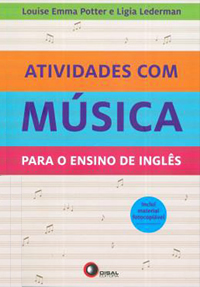One of the hardest things for me today is something that used to be quite easy: for a long time, answering the question, “what do you do” was simple enough - I’m a teacher. For the past six years, however, I’ve often found myself trying to build a description in my head that will be short and simple enough to fit within the “Occupation” box of the forms I have to fill out from time to time. The same effort is put into telling people about my job using less than 10 words: “Well, I worked a lot as a teacher, but now I have my own business, my partner and I work with CPD, we have a website, we write, we give workshops…” Nope. Not possible.
Of course all of it came primarily from being an English teacher. It just kept growing because, as a field of work, ELT can be an extremely broad one, just like Law, Medicine, or Business. ELT professionals can work on a variety of areas: Young Learners, Business English, General English, English for Exams, ESP, EAP, English for Mainstream Schools. If they want to go into higher paid positions, there is Teacher Education and training, ELT Materials Writing, Pedagogical Management, just to name a few. Such a wide range of choices, however, may often present a problem to some of us. Where do I see myself going to in the future? Do I need to choose a specific area, or should I just keep all of my options open? Do I want to continue working with students, or is teacher training something I want to pursue? If I want to teach teachers, how ready am I for it? What about writing? How do I even start?
How do you narrow your choices so that you can focus on what you truly enjoy and have potential to be great at?
Let’s begin with the problem with narrowing down: we all know that in ELT, just like in every other profession, we must be able to transition to and from a few different areas of the market if we wish to keep highly employable. If you work as a private teacher, chances are you will have to take on that student who is applying for an exam, even though that is not your favorite thing to work with. If you work for a language school, unless it is one that has a very specific audience, you might have to give classes to a variety of levels, ages, and purposes. Saying “no” just because you “don’t like’’ ESP, or “can’t stand” teaching real beginners will definitely put you at the bottom of the list when it comes to promotions, for example. In other words, versatility is very important, and when you become too much of a specialist, you lose. However, it is always nice to go deeper into things you have a particular interest in, and eventually become an expert in those areas, as long as it does not end up being the only single thing you do.
You can know a little bit about a lot of things, but it is probably wise to choose only a few things to know a lot about.
We have already addressed the issue of information overload here and I think this is a good reminder of why we really should choose what we want to go further into: it is easy to be overwhelmed by the amount of information we find on virtually every subject, so make it simpler by focusing on the areas you can see yourself happily working with. If all you want to do is teach, try developing the teaching areas you particularly like, because they can be quite unique and demand different abilities. Take courses and webinars on the topics related to your areas of choice, subscribe to journals and magazines, be part of a special interest group. In this particular case, you can choose areas that complement one another, for example ESP and Business English, Young Learners and Bilingual Education, etc.
The same is true for other ELT paths. If you feel you could go into management or teacher training, what kind of qualities do you already have, and what do you think you need to know more about? Has anyone ever told you that this is something you could be good at? Teacher education and training requires solid knowledge of theoretical aspects of language and language teaching methodologies. How solid is your knowledge?
As for ELT materials writing, experience counts a great deal, but the everyday work will show you it is not enough: a little formal education goes a long way, even if it means just dusting off those grammar and applied linguistic books. It is also wise to follow blogs from people who have been doing this for a while. They have a lot to teach.
Now, going back to the beginning of this article, you might be wondering why I am talking about this if I myself do so many different things at the same time. The truth is, these choices only come after you have done enough things to know what’s best. In order to do all of those things I am doing now, I had to give up actual teaching almost entirely. Choices. Life is full of them.
LIVRO RECOMENDADO
